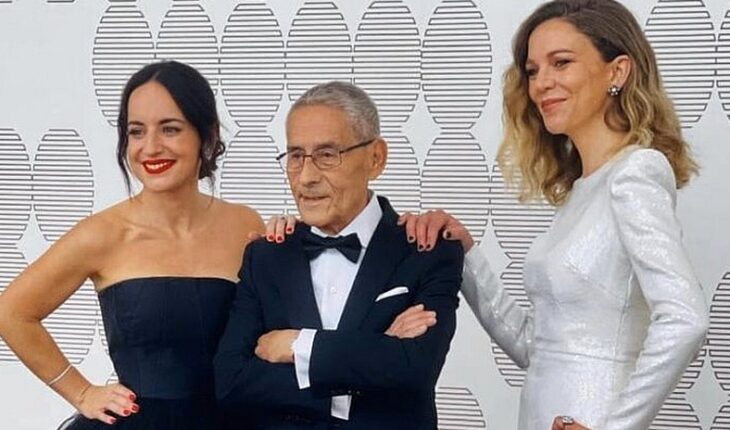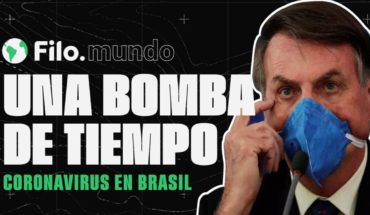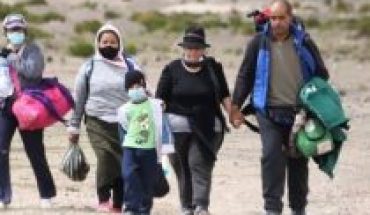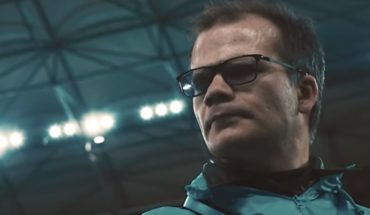Fond of spending her scarce free time at home, relaxing as a family and watching Netflix, Maite Alberdi now makes her own contribution to the programmatic grid of that same platform. His documentaries “Los niños” (2016) and “La once” (2014) can be seen on that screen from next Thursday, January 27, thus adding to his highly awarded film “El agente topo” (2021), which was already available. I think Netflix has brought documentaries closer to the audience, democratizing access to this type of films that, when they were shown in movie theaters, were still very niche,” says the Chilean filmmaker who, in just ten years of experience, has already competed at the Sundance festival, has been nominated for the Goya awards and has been about to win the Oscar (for “El agente topo”) in the Best Feature Film category. Documentary.” In Chile we also do not have a public television that broadcasts documentaries on a regular basis, while now, with Netflix, many people who have never seen documentaries are starting to see them, and in some cases they see them more than once,” he adds. Now engaged in a new project, of which she still cannot advance a single detail, the filmmaker says that, when the work allows it, she would like to see the commented miniseries “Get It Back”, by Peter Jackson, about The Beatles and the recording process of the album “Let It Be” (1970). At first glance it does not seem that this piece of musical archaeology is closely related to the themes that Alberdi usually addresses in his works, such as the loneliness of the elderly or the precarious work of adults with disabilities, but she clarifies that between her proposal and that of Jackson there is a strong harmony. ” In that documentary, of which so far I have only seen some scenes, you see how the Beatles work on their album, on the composition of the songs. With that record you understand how a rock band works, and you discover that they had a job that was very much like an office, with days from 9 to 7, which you would never imagine. The person who filmed all those work sessions never measured even closely the value that this record would have now, fifty years later,” he says. You have said that you would like your films to be like an intimate record of our present, so that in 50 more years people will see them and understand what our world was like. Yes, I think that one, when filming the intimacy of today, fails to measure what that record can imply when seen so many years later. I think ‘what a desire to have had filmed the intimacy of politicians or famous artists of the past, of figures that we now know only from the public sphere’. Now it’s happening, with films like “Get Back,” that records are appearing that allow us to understand a context to which we did not have access before. And there is that idea of filming the present so that that filming has, many years later, a much greater value than it had at the time. You’ve said you’d like people to watch documentaries without making distinctions between those films and fictional ones. Yes, that’s my struggle, we might say. In cinema, regardless of genres and work materials, in the end the result is the same: a narrative that has an aesthetic and that wants to bring you closer to a story or a theme. It doesn’t matter what the genre is, and this exhibition of my films, now on Netflix, helps that democratization. In the case of “Los niños”, your work was much more effective than hundreds of reports on television, because you helped to make changes in Chilean legislation on the work of people with disabilities. Well, that wasn’t a topic that was in the media. It happened to me that I talked to people and said, “Look, Chilean law allows disabled adult workers to be paid less than the minimum wage,” and they all said, “but that’s aberrant,” and in the end nothing happened. Everything remained the same. If that problem had been communicated in the media, maybe something could have been changed, but the film helped to go beyond that denunciation, because in the film you understand what people with Dawn syndrome wanted, what their expectations were of having an independent life. With a documentary like mine, you land the problem to a particular, everyday story that helps you see and understand what you don’t understand when you’re only shown figures. Perhaps, as your documentaries were shown all over the world, the Chilean authorities felt compelled to improve the country-image. Yes, I believe that cinema is a super tool to strengthen the country-image abroad, and in many cases it can also be a tool of denunciation, but somehow our films do not speak only of Chile, because in them Chilean filmmakers take charge of social problems that become universal in the questions, even if the specificities of what is happening are different. With “Children” it happened to me that in all the countries where it was presented there were completely different legislations. In France the issue was ultra resolved, and in Holland there were buildings where people with Dawn syndrome could make an independent life. And in other countries people with Dawn syndrome were no longer being born, because the doctor told mothers to have abortions. And that happened in places where the conditions were given for a person with Dawn syndrome to have an independent life.
Maite Alberdi: “We do not have a public television that broadcasts documentaries on a regular basis”
January 24, 2022 |





